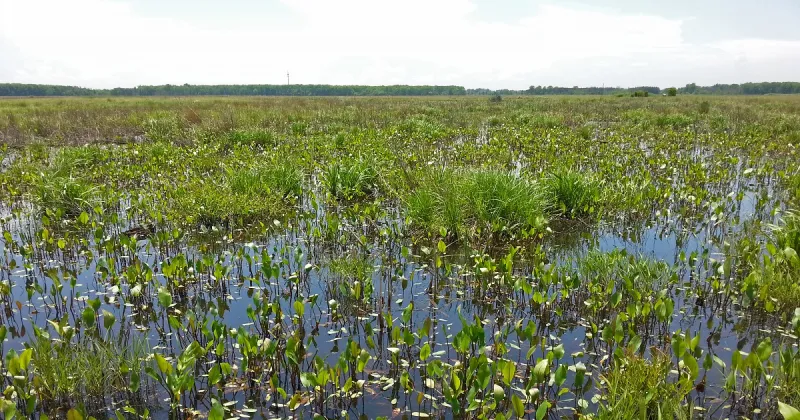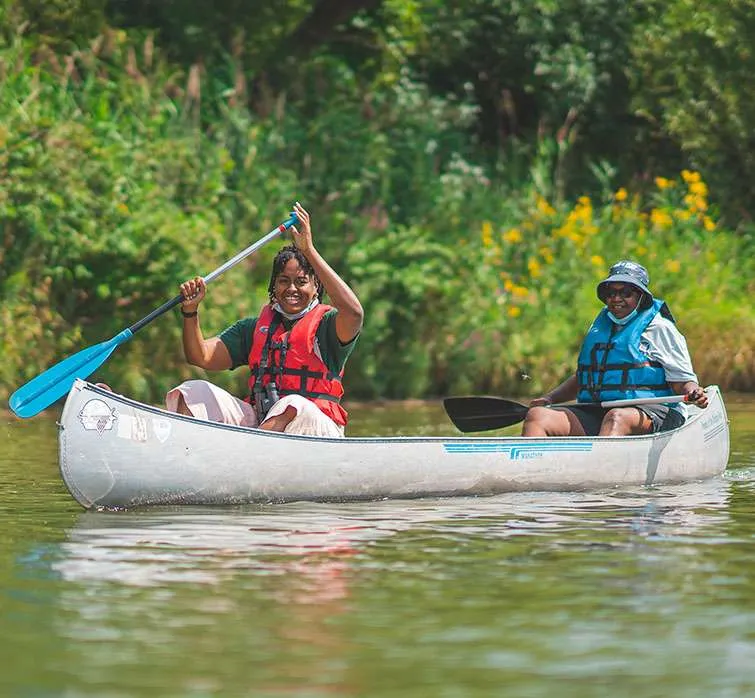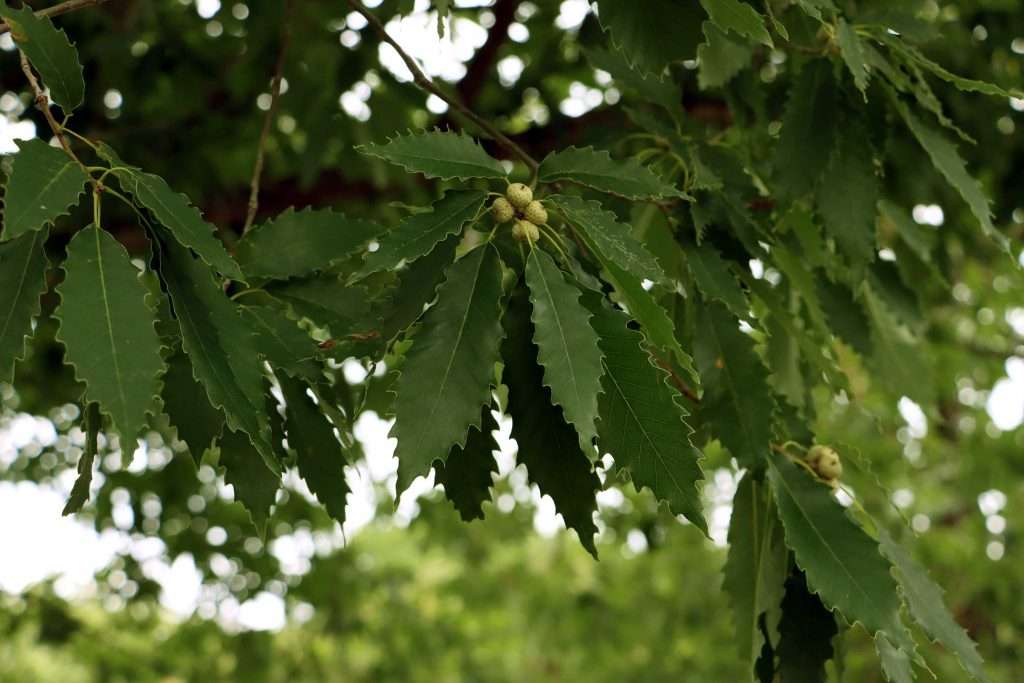Home / About Us / What We Do / Protecting Land, Water, and Wildlife / Improving Waterways and Water Quality
Share
Home / About Us / What We Do / Protecting Land, Water, and Wildlife / Improving Waterways and Water Quality
Share
Openlands connects communities and government agencies to build innovative partnerships for managing stormwater in flood-prone areas.
Ensuring Clean Water and Healthy Communities
The health of our lakes and rivers is intimately connected to the health of our people and the health of our lands. For the last fifty years, Openlands has strengthened regulations and shaped policy at all levels of government to clean up our rivers, protect our shorelines, and increased access for people to recreate in the waterways flowing through their neighborhoods.
As the region’s climate changes, and we continue to grow, more frequent and intense storms rack our communities. Millions of gallons of floodwaters — contaminated with sewage, pollution, and road salt — flush into our rivers and Lake Michigan, the source of drinking water for over six million people in our region.
We need to protect our most vital natural resources. Openlands connects communities and government agencies to build innovative partnerships for managing stormwater in flood-prone areas.
Our Work in Water

Reducing Urban Flooding with Space to Grow Green Schoolyards
Space to Grow © schoolyards capture millions of gallons of rainwater, reducing urban flooding and preventing surface runoff from overwhelming sewer systems. Through our partnership, Openlands and Healthy Schools Campaign works with the Metropolitan Water Reclamation District, Chicago Public Schools, and the City of Chicago’s Department of Water Management to transform underutilized schoolyards into lush gardens and safe playgrounds for students, families, and community members. Students, staff, parents, and community members are invited to participate in the inclusive planning process and provide input, allowing for the unique needs and vision of the entire school community to be communicated and addressed in the design of their schoolyard.

Natural Areas and Wetlands Restoration
Our wetlands restoration efforts focus on improving both recreational opportunities and local green infrastructure provided by native ecological communities, which naturally capture and retain stormwater. We focus on wetlands restoration projects to manage stormwater, prevent local flooding, and improve the habitat for wildlife. We capitalize on our impact by prioritizing the restoration of headwater sites – the habitats that form the origins of our region’s rivers and streams.
Over the decades, we have developed strong expertise in cutting-edge ecological restoration to restore the diversity and beauty of the native prairie, woodland, wetland, and ravine ecosystems. As our regional knowledge of habitat restoration has improved over the decades, so too has our knowledge of green infrastructure grown through research and studies.
Our most recent large-scale restoration, the O’hare Modernization Project, restored five sites along the Des Plaines River watershed and is a model for restoration.

Water Advocacy and Policy
For more than fifty years, Openlands has been a vocal, visionary advocate of regional planning as a means to statewide protection and conservation of water resources. We forge multi-faceted partnerships to transform cutting-edge pilot programs into common business practices. We collaborate with government agencies and industry on innovative stormwater management programs, plans, and clean water regulations to create vibrant, resilient places to live and work.
Openlands Headwater Streams of the Chicago Wilderness Region report advocated for the conservation and study of headwater streams, which contribute significantly to the health and vibrancy of our rivers.

Ensuring Access to Waterways through Regional Planning
For more than fifty years, Openlands has been a vocal, visionary advocate of regional planning as a means to statewide protection and conservation of water resources. We forge multi-faceted partnerships to transform cutting-edge pilot programs into common business practices. We collaborate with government agencies and industry on innovative stormwater management programs, plans, and clean water regulations to create vibrant, resilient places to live and work.
With our partners, the Illinois Department of Natural Resources, Illinois Paddling Council, and the Northeastern Illinois Planning Commission (now CMAP), Openlands co-authored the first regional water trails plan. With the support of the Grand Victoria Foundation, we worked to implement the plan and to show how people can paddle on our waterways.
Along the Little Calumet River, Openlands is now working with community organizations like People for Community Recovery, We Keep You Rollin’ (Bike and Wellness Group), and The Little Calumet Underground Railroad Project to amplify the stories along the river, and encourage investment in the Golden Gate and Altgeld Gardens communities.

Restoring the Tree Canopy to Capture more Stormwater
Our urban forestry work is one of the several avenues through which we address the increased need to better capture rainwater and prevent urban flooding, as street trees function as natural water storage systems. Openlands works on multiple levels to ensure trees are planted and cared for across Chicagoland, but especially in flood-prone neighborhoods like the Southwest side.